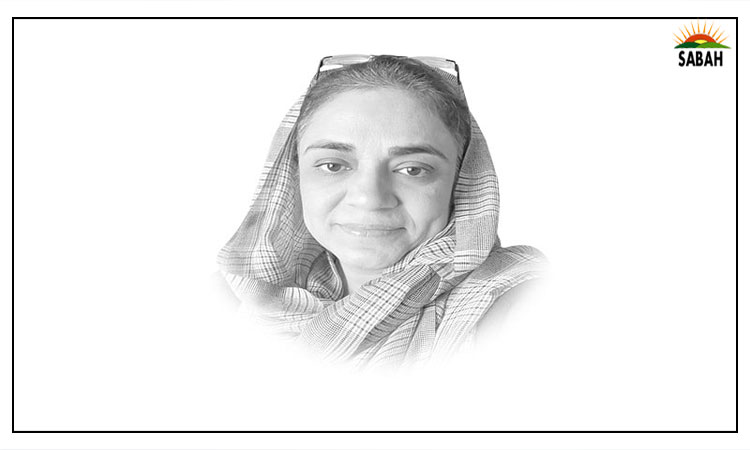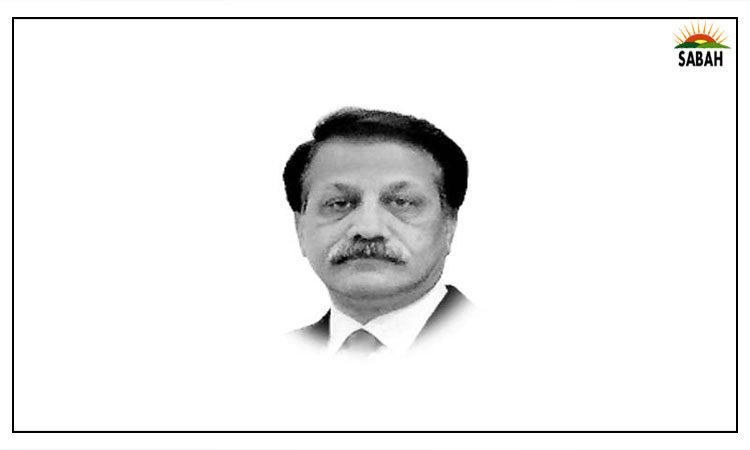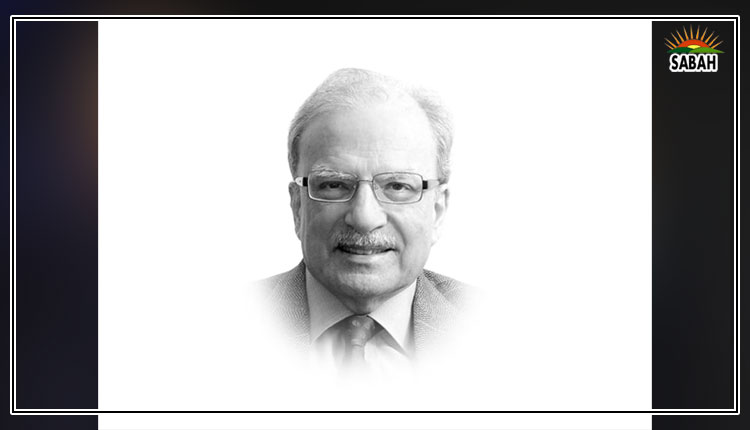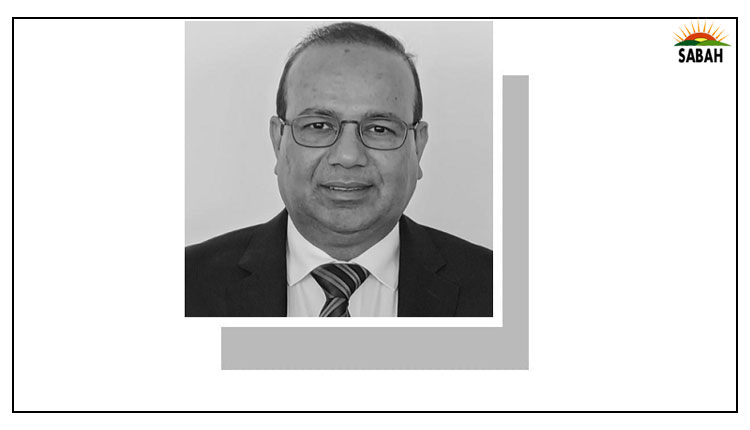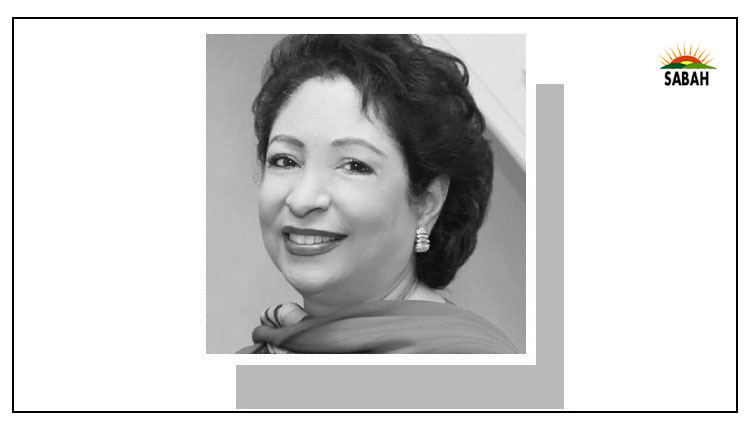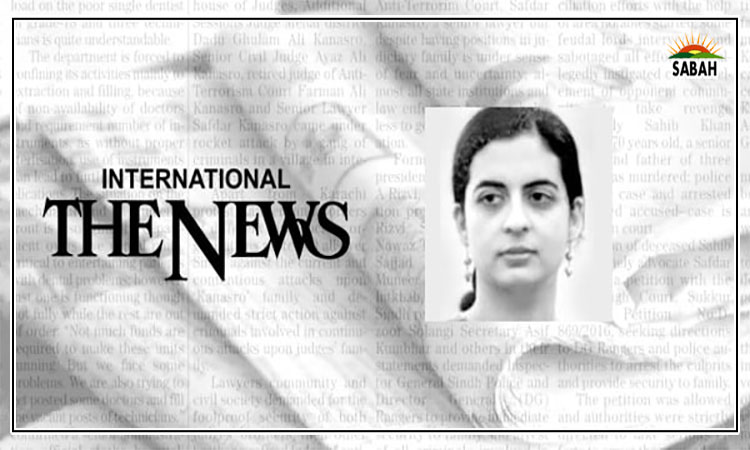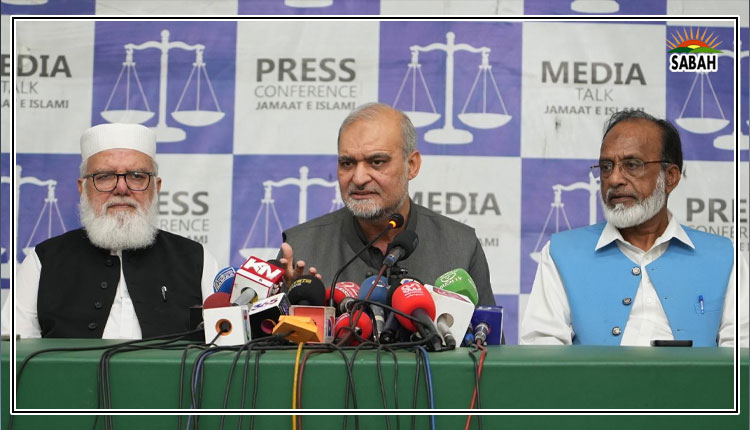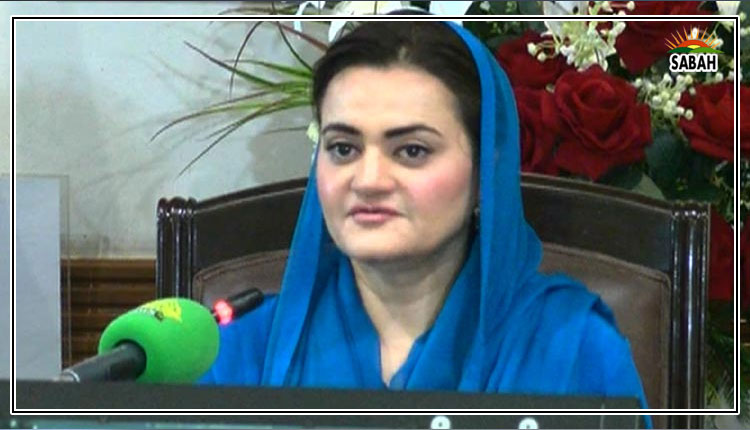Policy Dialogue on Combating Human Trafficking: A Crucial Step Towards a Safer Society
ISLAMABAD, Dec 15 (SABAH): After the launch of Pakistan’s first-ever 24×7 helpline to report Trafficking In Person (TIP crimes) earlier this week, in another substantial stride towards addressing the menace of human trafficking, the Society for Human Rights & Prisoners’ Aid (SHARP-Pakistan), in collaboration with the Australian High Commission in Islamabad, organized a policy dialogue here at a local hotel on Friday.
The event brought together key stakeholders and experts to engage in thought-provoking discussions aimed at presenting comprehensive recommendations to combat human trafficking, which is extensive in scale and scope and happens most of the time unnoticed all across Pakistan.
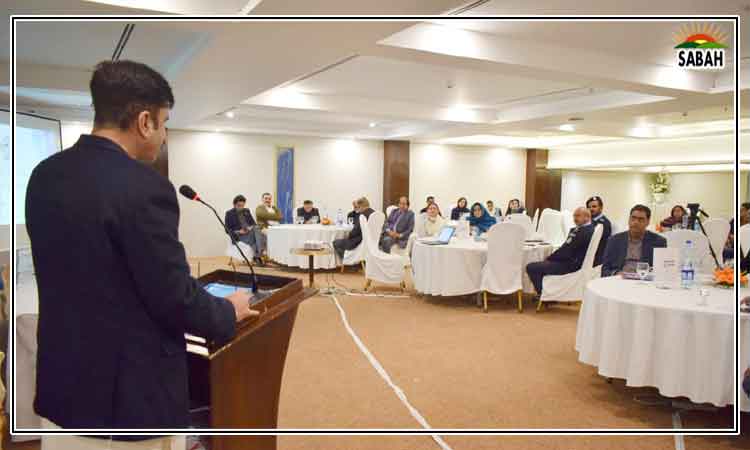
During the policy dialogue’s proceedings, experts apprised the audience that Pakistan has recently promulgated two new laws; Prevention of Trafficking in Persons (TIP) Act 2018 and Prevention of Smuggling of Migrants (SOM) Act 2018.
“The domestic servitude of minors is a crime under TIP Act 2018. Now any person can report trafficking –related crimes or seek help by calling FIA’s 111-247-786 helpline,” Israr Ahmad Khan, DIG Federal Investigation Agency (FIA) informed the audience. “This is in response to treaty obligation as well as the placement of Pakistan on Tier-2 status by the U.S. State Department. It took Pakistan 16 years to legislate and replace an ordinance on human trafficking. This also reflects the persistent lack of policy focus on this critical area of organized crime,” Israr added.
Michael Kourteff, First Secretary, Australian High Commission in Islamabad said that Australia is committed to supporting initiatives that combat human trafficking. The policy dialogue and the ACT project reflect our shared dedication to creating a world free from the scourge of human trafficking. “Enforcement of newly-enacted laws and criminalization of human trafficking is imperative, otherwise, exploitation of victims especially women and children will continue as the poverty, conflict and displacement are the perennial elements to exacerbate the vulnerabilities,” Michael remarked.
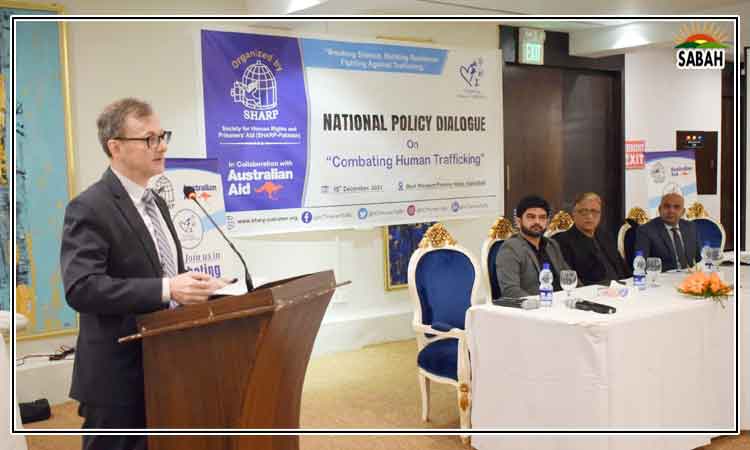
Mudassar Javed, CEO SHARP, said that our efforts under the ACT project aim to create a society where human trafficking is not just condemned but actively prevented. We are grateful for the support of the Australian High Commission in this crucial endeavor. Thematic panel discussions during the policy dialogue focused on four critical pillars: Prevention Strategies and Community Engagement: panelists Dr. Shabana Fayyaz of QAU, Dr. Rashid Ahmad of NDUand Syed Kousar Abbas of SSDO delved into effective preventive measures and the pivotal role of community engagement in raising awareness and building resilience against human trafficking. Kousar said that Rizwana’s is a TIP case but not being dealt as such because there’s no TIP committee in district Islamabad while there’s one in all other districts of the country. He also emphasized upon the need to strengthen the oversight of district TIP committees.
Manam Hanfi, project coordinator ACT project, said that the victim support and rehabilitation are integral components of any effective strategy against human trafficking. This dialogue provides an opportunity to assess and strengthen these aspects to ensure survivors receive the care they deserve.
Victim Support Mechanism, Rehabilitation and Cyber Trafficking: Panelists Dr. Khurram Mehran from Pakistan Telecommunication Authority (PTA) and Saira Furqan, a clinical psychologist from ministry of human rights explored the importance of robust victim support mechanisms and rehabilitation programs to ensure survivors receive the care and assistance needed to rebuild their lives. Dr. Khurram underscored that our mainstream media completely ignores this issue, therefore, the lack of awareness among youth makes them easy target for traffickers who are increasingly using technology for recruitment of victims. He also emphasized upon the need for a mass awareness raising campaign.
While moderating this panel discussion, Aatif Afzal, SHARP’s head of communication, said that through open dialogue and collaboration, we can create a stronger front against human trafficking. The policy discussions today are a stepping stone towards a safer and more secure future for our communities.”
Legal Frameworks and Law Enforcement: the dialogue critically examined existing legal frameworks, law enforcement strategies, and the need for effective implementation to bring perpetrators to justice.
Syed Liaqat Banori, chairman SHARP, said that the new laws were hurriedly passed without a public debate, therefore, there are gaps in them, which needs to be removed. “This policy dialogue is a testament to our collective commitment to eradicate human trafficking. It is imperative that we work collaboratively to implement comprehensive strategies that address the root causes and consequences of this heinous crime,” Banori added.
International Collaboration and Coordination: The role of international collaboration in combating human trafficking was emphasized by panelists IOM-UN’s Sibgha Ajazand Group Development Pakistan’s Valerie Khan, highlighting the necessity of coordinated efforts to address this global challenge. Sibgha said that the human trafficking is a $150 billion industry, thus a transnational issue that needs to be tackled by establishing partnerships at international, regional and local levels. Valerie Khan suggested engaging the local institutions of Mosque and Hujrah/Baithak to raise awareness.
Pertinent to mention here that Pakistan is a source, transit and destination country for men, women and children subjected to trafficking in persons, specifically forced labour and prostitution. The largest human trafficking problem is bonded labour, concentrated in the Sindh and Punjab provinces in agriculture and brick making, and to a lesser extent in mining and carpet-making.
Boys and girls are also bought, sold, rented or kidnapped to work in organized, illegal begging rings, domestic servitude, prostitution, and in agriculture in bonded labour. Illegal labour agents charge high fees to parents with false promises of decent work for their children, who are later exploited and subject to forced labour in domestic servitude, unskilled labour and other sectors. Agents who had previously trafficked children for camel jockeying in the Gulf States were not convicted and continue to engage in child trafficking. Girls and women are also sold into forced marriages; in some cases, their new ‘husbands’ move them across Pakistani borders and force them into prostitution.
The policy dialogue was conducted under the Advocacy for Combating Human Trafficking (ACT) project, being supported by the Australian Aid. The ACT project has been instrumental in conducting community awareness sessions and provincial consultative workshops across the country, fostering a multi-pronged approach to combat human trafficking.


